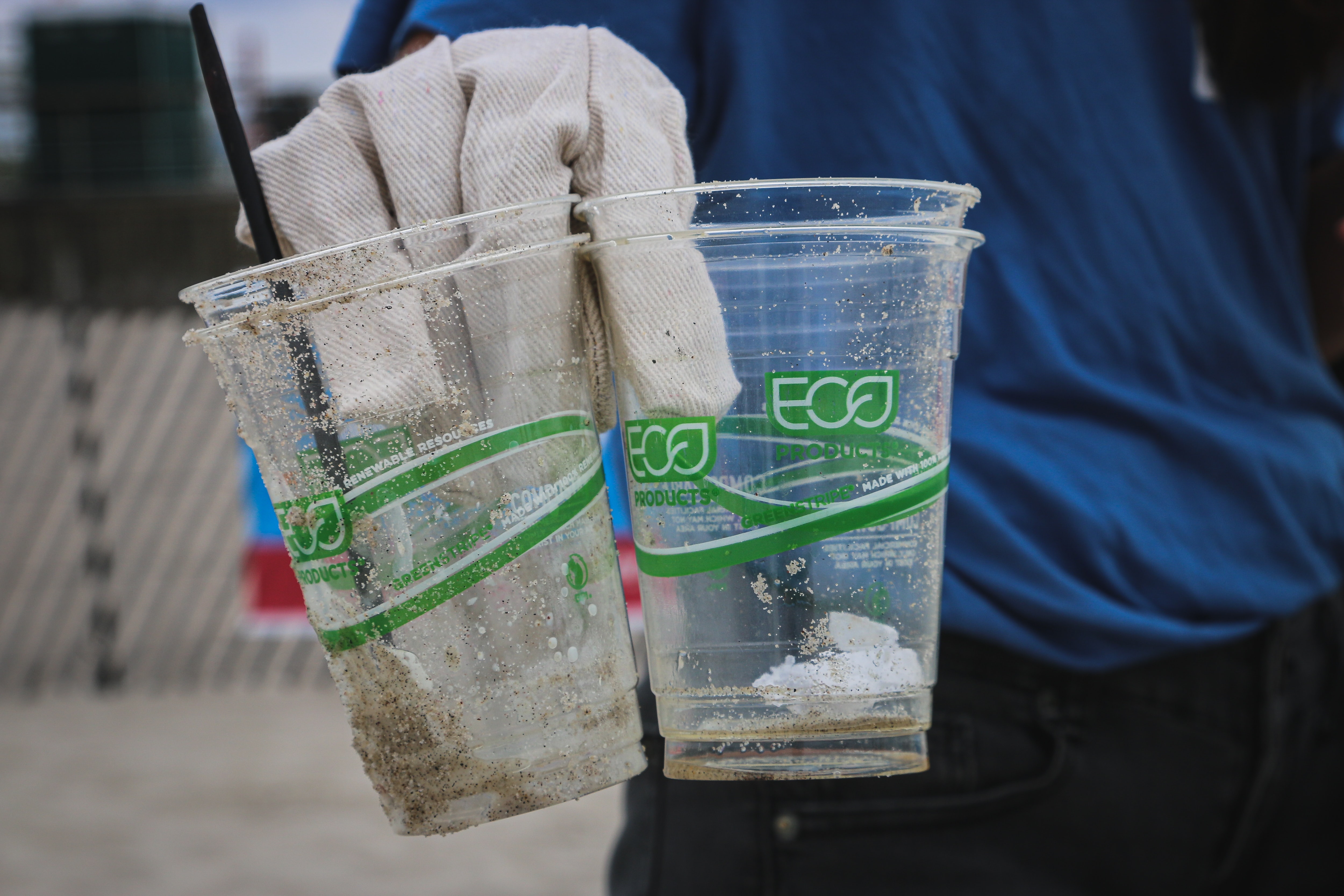Crystal Ma
Making the switch from petroleum-based plastics to plastics made from renewable resources seems to be an obvious choice when it comes to protecting the environment. However, in reality, not much is known about how effectively these plastics, called bioplastics, reduce greenhouse gas emissions and decrease our plastic waste. Nadia Springle is currently a master’s student at the School of Resource and Environmental Management and Planning Program at Simon Fraser University (SFU), who will be dedicating this year towards addressing this complex question. Her research will be featured during the Burnaby Festival of Learning as part of the SFU Living Lab presentation.
Nadia hails from a background in political and international studies at Carleton University, where she quickly came to realize that environmental concerns are embedded in many of the social justice issues she is passionate about. Her diverse background has allowed her to approach bioplastics research from a unique lens and she finds it incredibly rewarding to study in a program where she is surrounded by like-minded multi-disciplinary researchers. Her research supervisor has been an especially inspiring figure during her academic path. Nadia credits her family’s passion and drive, as well as the strong female figures in her program, with her success. She says that simply having a passion for the environment is enough to enter this field and to make a difference.
The bioplastic products she is investigating run the gamut from cups to cutlery to food takeout containers. She plans to meet with focus groups, stakeholders, and professionals in the bioplastics industry to shape the recommendations she will be providing to SFU and the Burnaby community. Since beginning her project, Nadia says that she has become much more aware about our society’s plastics issue, and she is conscientiously reducing how much plastic and single use items she utilizes on a daily basis. She recognizes how challenging this effort is, especially during the COVID-19 pandemic, and how much thought must go into striking a balance between health, safety, and sustainability. That’s why Nadia hopes to translate her findings into accessible terms to communicate to the general public. She believes that it is up to institutions and the government to make this type of information available to everyone so that we can all adapt these practical recommendations into our daily lives. Nadia hopes that the results of this project will allow everyday consumers to consider the benefits and trade-offs of bioplastics and to make smarter, more informed choices about what products to purchase.

